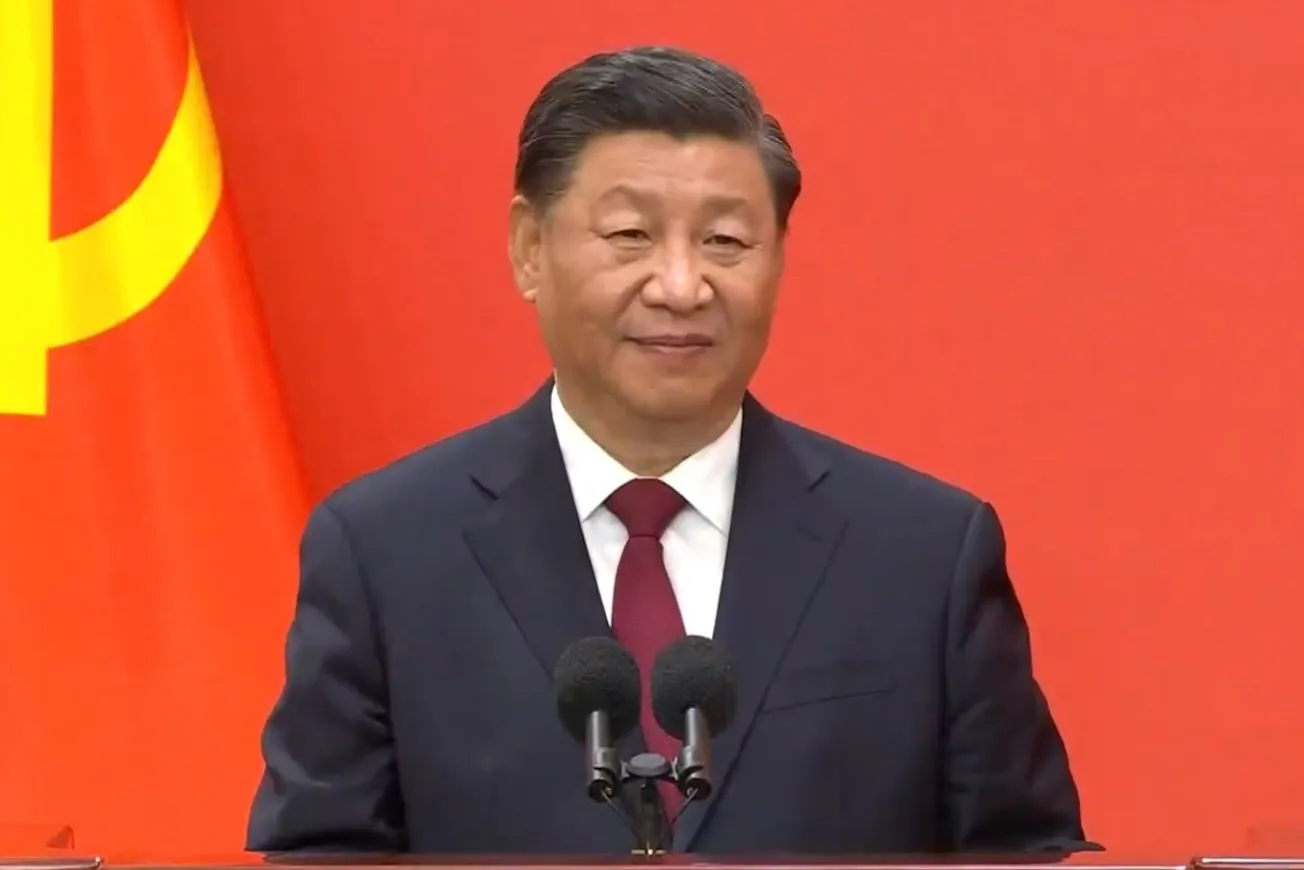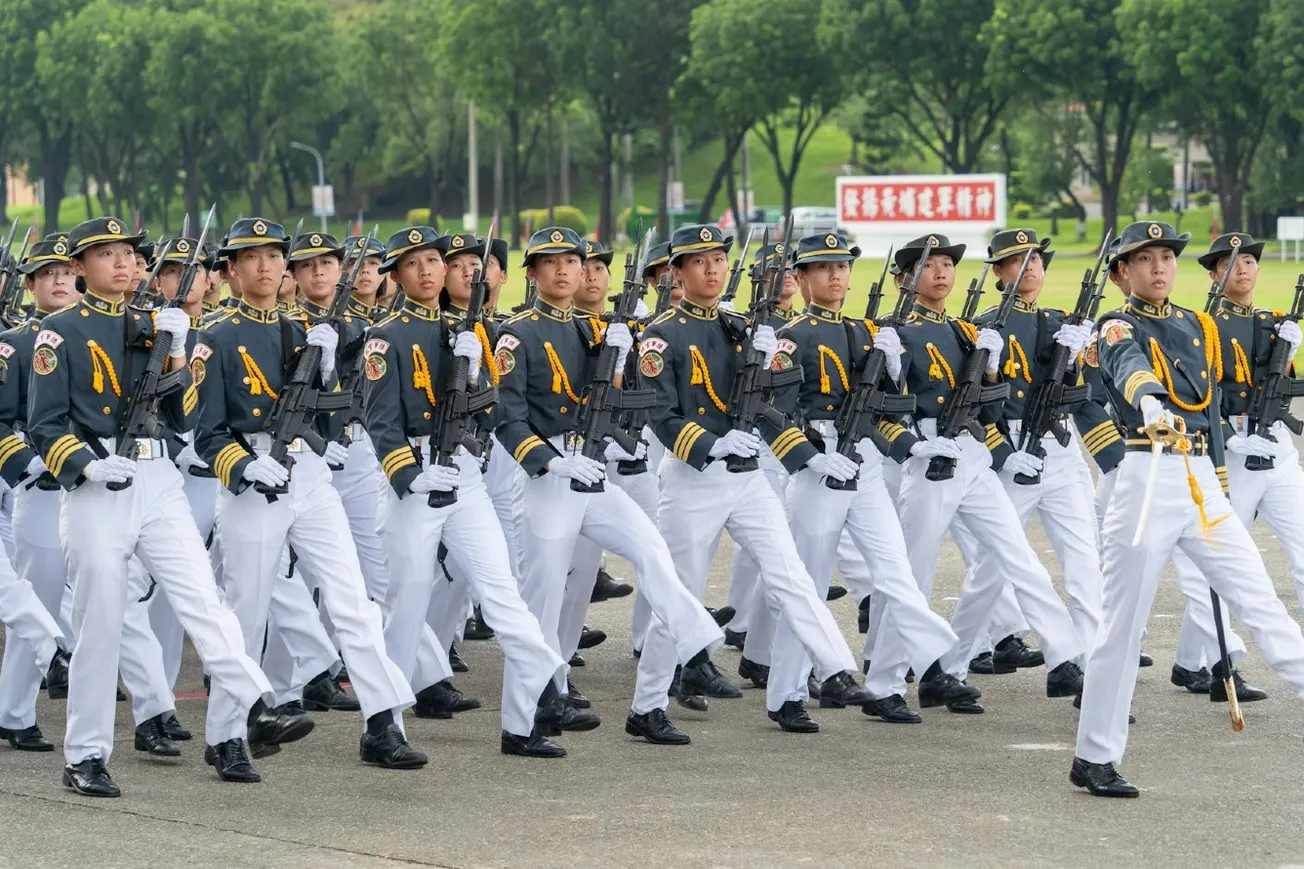President Xi Jinping's grandiose schemes are rarely contained within China's borders.
A decade ago, he launched his ambitious Belt and Road Initiative (BRI), a transcontinental, multinational project to link roads and ports to Chinese manufacturing hubs and cities. Mutli-billion dollar infrastructural facilities were to come up in developing countries boosting their economies and raising their living standards. That dream has achieved mixed results at best.
In 2022, President Xi announced the launch of the Global Security Initiative (GSI), another multipronged vision meant to secure the world from the illegitimate hegemony of the West. Holding the U.S. responsible for the prolonged war in Ukraine and blaming Washington and its allies for stoking fears of insecurity worldwide, the recently released GSI Concept Paper proposes a 'new vision of security.'
The concept paper outlines twenty' priorities of cooperation.' It covers a wide range of security challenges, from nuclear proliferation, terrorism, transnational organized crime, drug trafficking, climate change, and AI and data security, to name a few. But, as many ideas put forth by Beijing (like the 12-point position paper on Ukraine), the grand proposal is thin on specifics. It does not offer constructive steps to address these threats or elaborate on how China plans to implement the GSI.
The Chinese Ambassador to Maldives, Wang Lixin, recently wrote an article expounding the virtues of the initiative. Ms. Lixin writes, "The core concepts and principles of the GSI can be summarized as "Six Commitments," namely, stay committed to the vision of common, comprehensive, cooperative and sustainable security, stay committed to respecting the sovereignty and territorial integrity of all countries, stay committed to abiding by the purposes and principles of the UN Charter, stay committed to taking the legitimate security concerns of all countries seriously, stay committed to peacefully resolving differences and disputes between countries through dialogue and consultation, stay committed to maintaining security in both traditional and non-traditional domains."
Madam Ambassador stated, "Over the past 70-plus years, China has never initiated a war or occupied an inch of a foreign land. It is the only country that has incorporated peaceful development in its Constitution, and the only country among the five nuclear-weapon states to pledge no first use of nuclear weapons. China's track record on peace can stand the test of history, and its peaceful rise is an unprecedented miracle in human history."
While the adherence to the UN Charter and the pledge no-first-use of nuclear weapons are laudable, it cannot be ignored that Beijing has broken these lofty "commitments" and done so multiple times. While the Chinese Communist Party may successfully gag criticism on the mainland, the international community has not forgotten the annexation of Tibet or the ongoing ill-treatment of the Uyghurs of the Xinjiang province. President Xi's plans to 're-unify' Taiwan, using whatever means necessary, has made it a flashpoint of tension. Many of the perceived threats facing China are, in fact, the international community's reactions to the aggressive and provocative actions of Beijing over the island state.
Along the lines of the BRI, GSI is another strategy to expand Chinese influence, this time in the defense domain. Rattled by the U.S led initiative to protect Ukraine against Moscow's aggression, Beijing is painting NATO as a threat to peace. America's efforts to foster an Indo-Pacific fraternity are perceived as aggressive moves to thwart China's plans in the South China Sea and beyond.
The concept paper proposal for 'more exchanges and cooperation among university-level military and police academies' and plans for '5 000 training opportunities in the next five years to train professionals of developing countries for addressing global security issues' lay bare Beijing's plans to foster military ties with nations far and wide. China believes such relations will shore up its defense should it invade Taiwan.
In recent months, China has upped its roster of joint exercises with various South Asian countries. Chinese forces have conducted combined training drills with Laos, Cambodia, and Singapore. The alternate "security architecture" proposed by Beijing does not seem to boost peace in particular; it simply places Beijing at the center of the defense operations.
GSI is being touted as "open and inclusive." According to China, the initiative has already garnered support from around eighty countries, despite the concept's vagueness. Beijing is portraying the breakthrough Iran-Saudi peace deal as the first successful application of the Global Security Initiative.
Aimed at developing nations and those outside Washington's fold, the latest efforts to "improve global security" is just the third-term President Xi Jinping's long-cherished dream of a world order with Beijing as its main axis. Like another of his flagship programs, the BRI, the GSI will likely serve Chinese interests more than the rest of the world.
Like our insights? Show your support by becoming a paid subscriber!









